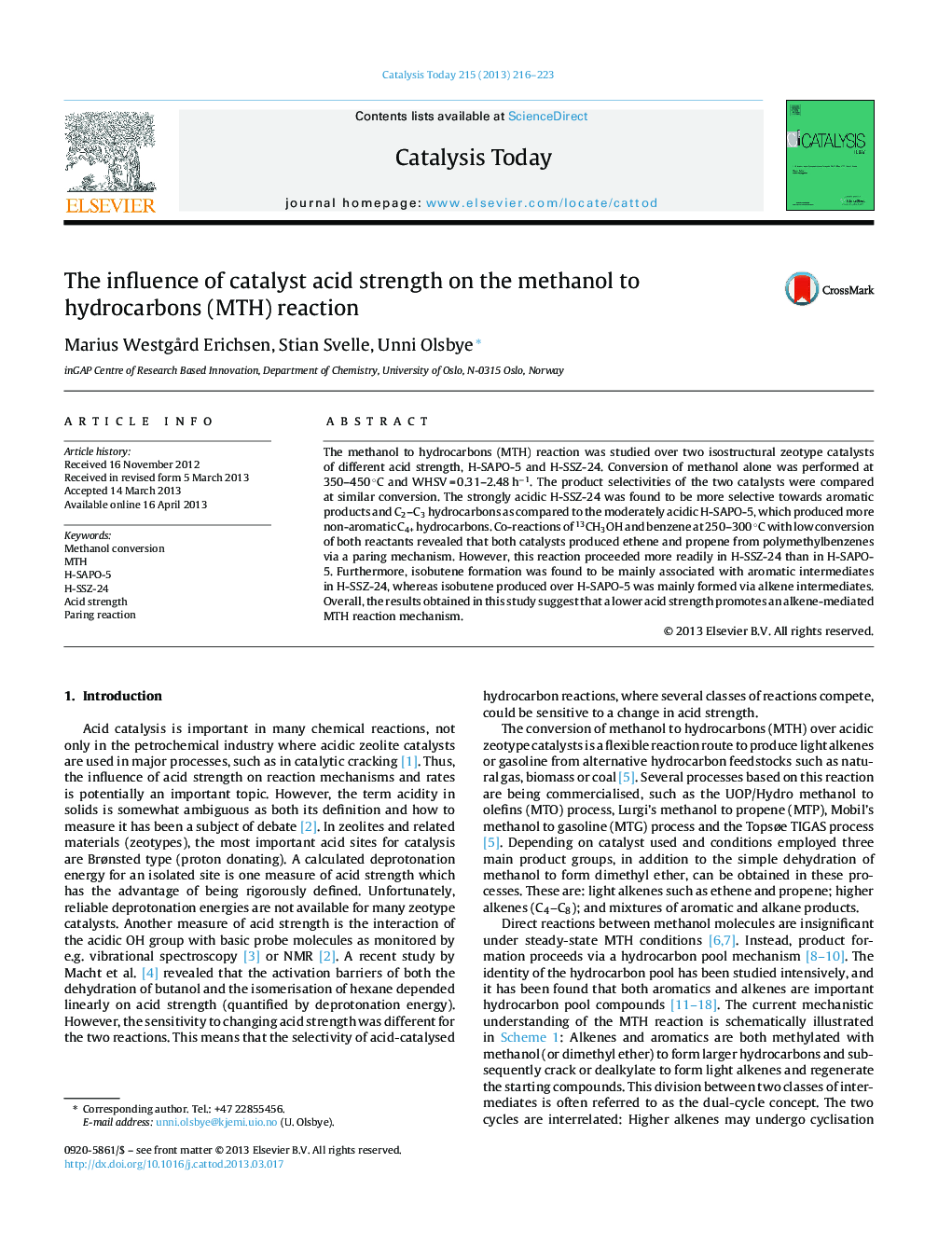| کد مقاله | کد نشریه | سال انتشار | مقاله انگلیسی | نسخه تمام متن |
|---|---|---|---|---|
| 54639 | 47017 | 2013 | 8 صفحه PDF | دانلود رایگان |

• Two isostructural zeotypes with different acid strength were tested for the methanol to hydrocarbons reaction.
• Higher acid strength led to higher selectivity towards aromatic products and ethene.
• Alkenes can be produced from polymethylbenzenes via a paring-type reaction.
The methanol to hydrocarbons (MTH) reaction was studied over two isostructural zeotype catalysts of different acid strength, H-SAPO-5 and H-SSZ-24. Conversion of methanol alone was performed at 350–450 °C and WHSV = 0.31–2.48 h−1. The product selectivities of the two catalysts were compared at similar conversion. The strongly acidic H-SSZ-24 was found to be more selective towards aromatic products and C2–C3 hydrocarbons as compared to the moderately acidic H-SAPO-5, which produced more non-aromatic C4+ hydrocarbons. Co-reactions of 13CH3OH and benzene at 250–300 °C with low conversion of both reactants revealed that both catalysts produced ethene and propene from polymethylbenzenes via a paring mechanism. However, this reaction proceeded more readily in H-SSZ-24 than in H-SAPO-5. Furthermore, isobutene formation was found to be mainly associated with aromatic intermediates in H-SSZ-24, whereas isobutene produced over H-SAPO-5 was mainly formed via alkene intermediates. Overall, the results obtained in this study suggest that a lower acid strength promotes an alkene-mediated MTH reaction mechanism.
Figure optionsDownload high-quality image (298 K)Download as PowerPoint slide
Journal: Catalysis Today - Volume 215, 15 October 2013, Pages 216–223